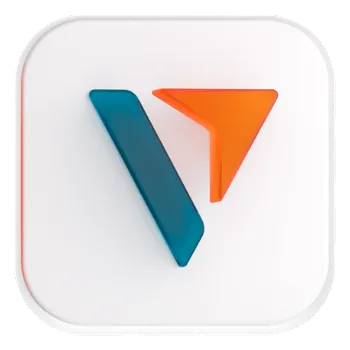If you’re just getting started with trading, you’ll have access to many different instruments. Some of the most popular options you’ll encounter include contracts for differences (CFDs) and futures contracts.
Both instruments have unique characteristics and are suited for different trading strategies, whether you’re considering short-term trades, trading CFD futures, or long-term trading.
Let’s explore the differences, similarities, and key factors like future dates to help you choose the one that aligns with your goals and strategies.
Key Points
- CFDs and futures are derivatives allowing trading on various financial markets, with CFDs offering more flexibility due to no fixed expiration dates and lower capital requirements.
- Futures contracts are more transparent, traded on centralised exchanges with fixed expiration dates and larger contract sizes, whereas CFDs are traded OTC with a broker acting as the counterparty.
- CFDs offer advantages over futures, such as lower capital requirements, no obligation for asset delivery at expiration, and the ability to trade across multiple markets, useful for hedging and diversifying portfolios.
CFDs vs. Futures: Which Suits You More?
CFDs and futures are a type of financial derivative and are popular investment instruments that allow people to buy and sell assets in a wide range of financial markets, including shares, forex, indices, commodities, bonds, and more. CFDs are often regarded as more ‘flexible’ than trading futures directly, making them ideal for short-term trading or traders who prefer the option to enter and exit positions quickly.
A CFD is an option to trade if:
- You have lower capital but want to trade on leverage
- You want to hedge positions in your portfolio
- You want to trade CFD contracts over longer timeframes
- You want to get into and out of positions fast
- You don’t want to own the underlying asset
Futures is an alternative instrument to trade if:
- You have higher capital but want to trade on leverage
- You don’t want to own the underlying asset
- You want a highly liquid market that you can quickly enter or exit
- You want to trade both bull and bear markets
- You want to make trades that expire after a certain period
Similarities Between CFDs and Futures
Both CFDs and Futures are Leveraged Products
- You can open leveraged positions for both CFDs and futures. That means you only need margin in your brokerage account to open a position. Your CFD provider will lend you the remaining funds necessary to hold a more significant position.
- Although that means potential for higher returns, it can also mean more losses than your invested capital.
Both Give You Access to Multiple Markets
- Both financial derivatives give you access to multiple markets. You can access Exchange Traded Funds (ETFs), forex markets, indices, and commodities using both CFDs and futures.
You Can Go Long or Short
- Both CFDs and futures allow you to make both long and short trades. That gives you the potential to take advantage of market opportunities, even when the market conditions are in a downturn.
Both CFDs and Futures are Derivative Products
- Both CFDs and futures are derivative contracts. CFDs and futures draw their value from the assets that underlie them.
You Can Use Both Instruments to Hedge
- These two instruments offer an excellent opportunity to open positions in opposite directions to your locked positions. You can also use them to potentially minimize losses if the markets go against them.
Both Markets Offer High Levels of Liquidity
- CFDs and Futures have high levels of liquidity in the market. You can use both instruments to get into markets or liquidate contracts.
CFD and Futures Difference
There are, however, multiple differences between CFDs and futures. One of the most important ones is that futures have an expiration date for completion which will, ultimately, come with a predetermined price.
Expiration dates
- The most fundamental difference between futures and CFDs is expiration dates. Unlike CFDs that have no expiration dates, futures do expire.
- By definition, future contracts require a buyer to buy an asset, and a seller to sell an asset at a specific date set in the future at a fixed price. A futures contract is valid at or before its expiry date. [1]
- CFDs have no expiry date. You can keep a CFD position open for as long as you want. They also don’t have fixed prices, and you can trade them with buy and sell prices.
Fees and costs
- There are some differences in the fees you’ll pay to trade these two instruments.
- For example, you’ll pay five types of fees with a futures contract:
- Commissions
- National Futures Association fees
- Exchange or clearing fees
- Data fees
- Spreads
- These fees apply to every futures contract traded.
- However, some of these fees do not apply to CFDs, while some fees charged to CFDs do not apply to futures. Costs that apply to CFDs include:
- Spreads
- Commissions
- Holding fees for overnight positions
- Currency conversion fees
Type of market
- Another fundamental difference between futures contracts and CFDs is the type of markets they’re traded in.
- CFD trading over the counter (OTC). That means any CFD position you take is executed against your broker. That makes your broker a bookmaker taking the opposite side of your CFD position. [2]
- However, futures trading is done on a centralised exchange. All participants see the trades, quotes, and rates. Essentially, that makes your broker an intermediary between you and the markets. Instead of taking positions against your broker, the broker matches you to other buyers and sellers based on transparent rules, fees, and liquidity. [3] This makes the futures markets almost entirely transparent.
Capital Requirements
- Another fundamental difference between these two derivative instruments is the type of markets they’re traded in. You’ll require more capital to get into trades with futures than CFDs. That’s because futures require you to trade larger contract sizes, which investment banks and other large institutions will use.
- For instance, you can trade 10 ounces of Platinum with a CFD contract. For a futures contract, you’ll trade 100 ounces of Platinum, which means a higher initial investment for futures, even when you trade with leverage.
Availability
- CFDs are banned in the US and Brazilian markets. That means you can’t access CFDs from certain jurisdictions. [4]
- However, futures are available in centralized exchanges since these exchanges are tightly regulated, and there’s plenty of transparency. You can trade them instead, and they are available globally.
Advantages of Trading CFDs Over Futures
Here are some advantages of trading CFDs over futures:
Lower Capital Requirements
- Although you can trade both futures and CFDs on margin, futures contracts have a higher margin requirement than CFDs. As we stated above, that’s because you trade larger contracts with futures. At the same time, you may have to pay higher fees per futures contract.
- CFDs give you access to the same markets as futures contracts, but with a lower margin requirement. That means, with much lower capital, you can get into long or short CFD positions faster. Coupled with leverage and a good online CFD trading strategy, you can trade any CFD markets you prefer.
No Expiration Dates
- CFDs do not have expiration dates, unlike futures.
- Futures have expiry dates. When a futures contract expires, a trader is obligated to deliver the underlying asset according to the terms of the initial contract. So in a short position, the trader must sell the underlying asset at a fixed price. In a long position, the trader must buy the asset at that fixed price.
- On the other hand, CFDs do not expire. They only trade like other securities using buy and sell prices. That means you can keep them running for as long as you choose.
Derivative Instrument
- For both futures and CFDs, you don’t have to own the underlying asset to trade them. Instead, you only trade the price movements of that asset.
- While these advantages also apply to futures, you enjoy them for trading CFDs too. Let’s look at some of them:
- You can use CFDs to hedge positions in your portfolio. Any opportunities you make from trading CFDs can offset losses you make trading other asset classes.
- CFDs are efficient financial instruments. You can use these trading instruments to replicate the payoff you would get for trading the underlying assets.
- CFDs give you access to multiple markets and assets, making it easy for you to trade commodities, ETFs, forex stock indices, and equity/stock markets at an instant.
Final Thoughts
If you’re looking for an instrument that gives you access to a transparent market with thousands of participants, futures are an excellent choice. However, futures have expiration dates.
If you have a good strategy, you can still use CFDs to create trading opportunities. Both instruments are outstanding options for hedging your portfolio positions, but CFDs require less capital than futures.
References
- “Futures Definition – Investopedia.” https://www.investopedia.com/terms/f/futures.asp. Accessed 7 Apr. 2022.
- “What Does Over-The-Counter OTC Mean? – Contracts-For ….” https://www.contracts-for-difference.com/course/over-the-counter-otc.html. Accessed 7 Apr. 2022.
- “Centralized Market Definition – Investopedia.” https://www.investopedia.com/terms/c/centralizedmarket.asp. Accessed 7 Apr. 2022.
- “CFD trading: Why the US won’t allow it and alternatives | finder.com.” 12 Feb. 2021, https://www.finder.com/cfd-trading. Accessed 7 Apr. 2022.



